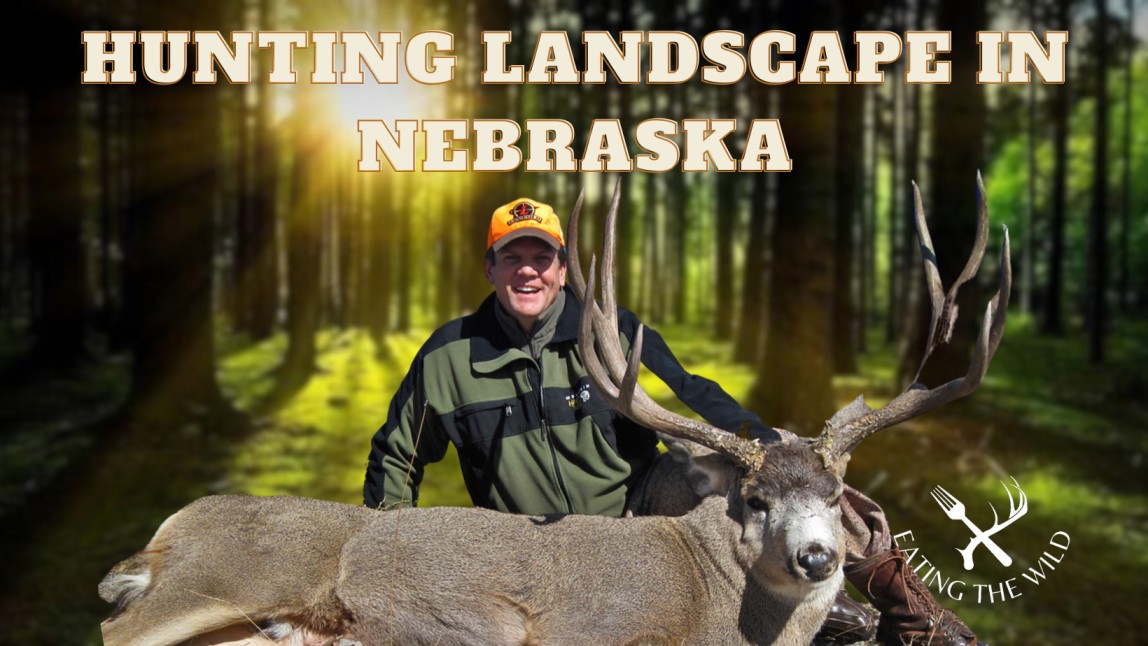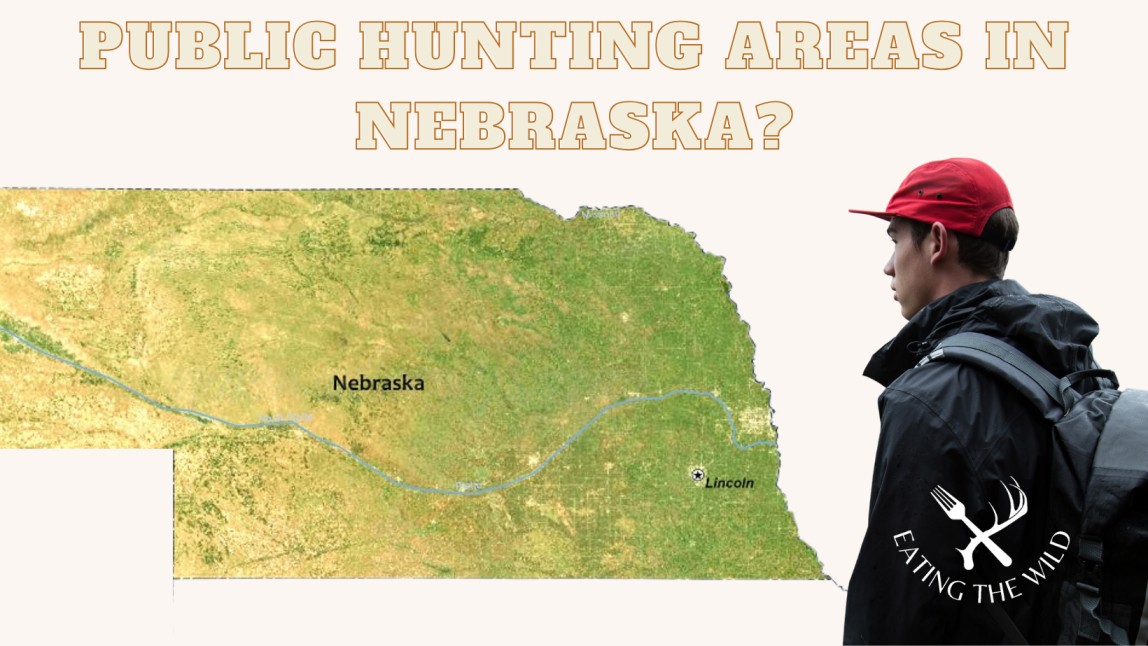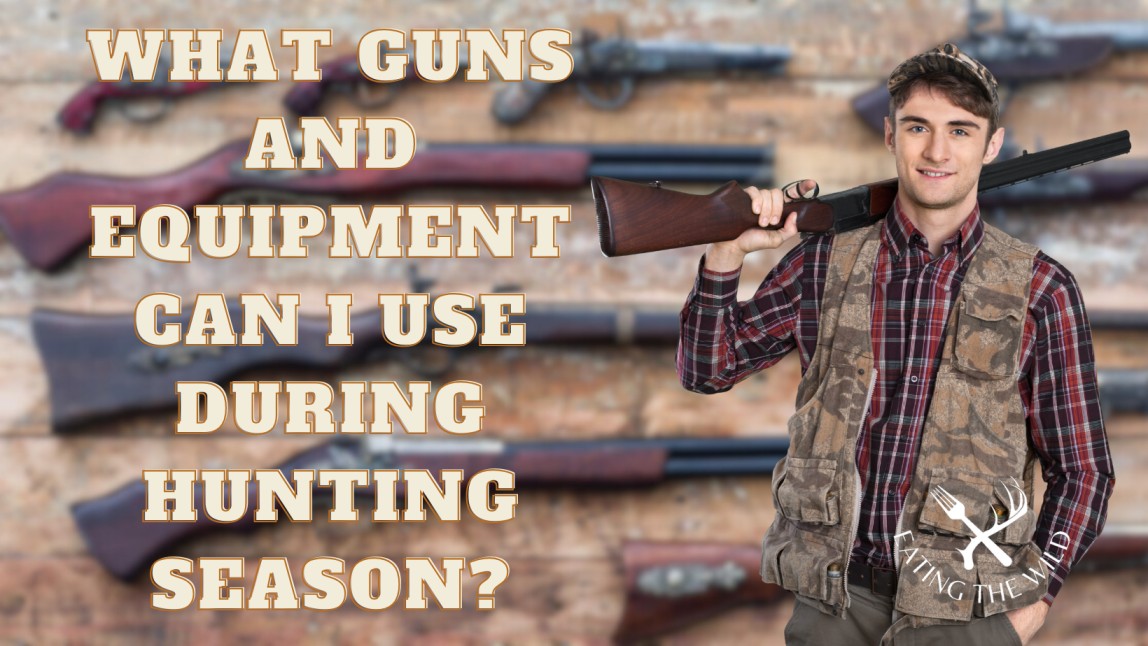
Nebraska, with its diverse landscapes, is a haven for hunters, offering a wide range of species and hunting seasons. The state ensures a busy year for enthusiasts, providing opportunities to hunt bighorn sheep, antelope, elk, deer, and more.
Understanding the hunting seasons in Nebraska is crucial for planning a successful and legal hunt. The state has specific dates, license information, bag limits, and other regulations that hunters must adhere to.
In this blogpost, we will explore the details of the hunting seasons in Nebraska offering information for both novice and experienced hunters alike.
So, without further ado, let’s get started.
Hunting Landscape in Nebraska:
Nebraska offers a rich and diverse hunting landscape, providing ample opportunities for hunting various game on over 1 million acres of public lands. The state is characterized by its varied terrain, including forests, grasslands, and wetlands, each offering unique hunting experiences.

Hunters in Nebraska can utilize an interactive atlas map provided by the Nebraska Game & Parks Commission to scout out areas before hunting.
Beyond public properties, the surrounding landscapes in Nebraska also offer excellent hunting opportunities. The state is renowned for its diverse game and stunning landscapes, making it one of the best places in the country to hunt and explore.
From waterfowl to big game, Nebraska’s hunting landscape is a haven for hunters seeking a variety of experiences in the great outdoors.
When Does Hunting Season Begin in Nebraska?
In Nebraska, the start dates for hunting seasons vary by the type of game. It’s crucial for hunters to be aware of these dates to plan their hunting expeditions accordingly.
Below is a table outlining the opening dates for various hunting seasons in Nebraska for the year 2023 – 2024:
| Game | Season | Start Date |
| Deer | Archery | September 1, 2023 |
| Deer | Special Landowner | November 4, 2023 |
| Deer | November Firearm | November 11, 2023 |
| Deer | Muzzleloader | December 1, 2023 |
| Turkey | Spring Archery (includes youth) | March 25, 2023 |
| Turkey | Spring Youth Shotgun | April 8, 2023 |
| Antlerless Deer | October River Antlerless Firearm | October 1, 2023 |
| Antlerless Deer | River Antlerless Late Firearm | January 31, 2024 |
(Source: Nebraska Game & Parks Commission)
Explanation of Dates for Different Games and Animals:
- Deer Archery Season: Begins on September 1, 2023, allowing hunters to hunt deer with archery equipment.
- Special Landowner Deer Season: Starts on November 4, 2023, specifically for landowners.
- November Firearm Deer Season: Commences on November 11, 2023, for hunting deer with firearms.
- Deer Muzzleloader Season: Opens on December 1, 2023, for hunting deer with muzzleloaders.
- Turkey Spring Archery Season: Starts on March 25, 2023, including youth.
- Turkey Spring Youth Shotgun Season: Begins on April 8, 2023, specifically for youth with shotguns.
- Antlerless Deer October River Firearm Season: Begins on October 1, 2023.
- Antlerless Deer River Late Firearm Season: Starts on January 31, 2024.
Hunting Rules in Nebraska:
Let’s take a look at hunting rules in Nebraska:
Season Dates and Bag Limits:
Nebraska’s diverse wildlife offers a variety of hunting opportunities, each with its own season.
The state meticulously sets these dates to ensure the sustainability of each species and to provide the best hunting experiences. The bag and size limits are designed to maintain healthy populations and to give every hunter a fair chance at success.
It’s crucial for hunters to familiarize themselves with these dates and limits, as they change annually based on wildlife population assessments.
Adhering to these limits is not just a legal requirement but also a responsibility to contribute to wildlife conservation efforts.
Licensing and Permits:
Before going on a hunting expedition in Nebraska, securing the right licenses and permits is paramount. The state offers various licenses, including those for residents, non-residents, youth, seniors, and disabled persons, each with its own set of eligibility criteria and fees.
Non-resident hunters, in particular, should pay extra attention to licensing requirements, as they differ significantly from those for residents.
Proper licensing ensures that hunters have legal authorization, contributing to the state’s wildlife management and conservation funding.
Legal Weapons:
In Nebraska, the type of weapon used for hunting is regulated to ensure both hunter and animal welfare. During the firearm season, the state permits the use of specific calibers to ensure the humane and effective harvesting of game.
Beyond the firearm season, hunters should be aware of other weapon regulations, such as those for archery and muzzleloader seasons. Adhering to these regulations guarantees that hunting remains a safe and ethical activity for all participants.
Hunting Areas:
Nebraska is dotted with numerous hunting areas, each offering unique hunting experiences and game options. However, hunters must respect the boundaries of these areas. Trespassing on private lands without explicit permission is illegal and unethical.
Also, certain areas are designated as conservation or protected areas where hunting is restricted or prohibited.
Respecting these boundaries not only ensures a legal hunting experience but also contributes to the state’s conservation efforts.
Hunter Education:
For those born on or after January 1, 1977, Nebraska mandates the completion of a Hunter Education Course.
This requirement underscores the state’s commitment to ensuring that hunters are well-versed in safety, ethics, and wildlife conservation.
The course covers a range of topics, including firearm safety, hunting ethics, wildlife identification, and survival skills, equipping hunters with the knowledge they need for a safe and successful hunt.
Species-Specific Regulations:
Each game species in Nebraska comes with its own set of hunting regulations. These rules cover various aspects, including permissible hunting methods, hunting hours, and equipment restrictions.
For example, deer hunting regulations may differ from those for turkey or other game animals. Understanding and following these species-specific regulations is crucial for a legal and ethical hunting experience, ensuring the welfare of both the hunter and the hunted.
Ethical Hunting:
Ethical hunting is a cornerstone of Nebraska’s hunting culture. The state encourages hunters to respect private property, seek the necessary permissions, and follow fair chase principles.
This approach ensures the humane treatment of animals and the sustainability of hunting practices.
Ethical hunters contribute positively to the state’s wildlife conservation efforts, helping to preserve Nebraska’s rich hunting heritage for future generations.
Tagging and Reporting:
In Nebraska, the process of tagging and reporting is a streamlined and essential practice. Once a hunter successfully harvests game, it is mandatory to tag the animal immediately.
This process involves attaching a valid hunting tag to the animal, providing crucial information such as the hunter’s details and the time and place of the harvest.
Following this, hunters must report the harvest to the relevant authorities. This reporting is a critical step in aiding the state’s wildlife management efforts. It allows for the monitoring of species populations, ensuring that hunting practices do not adversely affect the ecosystem.
By adhering to these procedures, hunters contribute to the sustainability of hunting opportunities, ensuring that future generations can also enjoy this cherished activity.
Use of Dogs:
In Nebraska, dogs are valuable companions for hunting certain game species. The state permits the use of dogs for hunting, recognizing their skills and instincts that aid hunters.
However, it is imperative for hunters to maintain control over their dogs at all times. The state has specific regulations regarding the use of dogs for hunting, ensuring that the practice is ethical and does not harm other wildlife or disrupt their habitats.
Adherence to these regulations guarantees a respectful and harmonious hunting experience, aligning with the state’s conservation goals.
Prohibited Practices:
Nebraska has a clear stance against certain hunting practices deemed unethical or harmful. The state strictly prohibits activities such as spotlighting, hunting from a moving vehicle, and baiting.
These practices not only provide an unfair advantage to hunters but also disrupt the natural behavior of wildlife, leading to potential imbalances in the ecosystem.
Hunters caught engaging in these prohibited practices face significant penalties, including hefty fines and the potential revocation of hunting privileges. This strict enforcement underscores Nebraska’s commitment to ethical and sustainable hunting.
Non-Resident Hunters:
Nebraska warmly welcomes non-resident hunters to explore its diverse hunting opportunities. However, non-resident hunters must adhere to specific licensing and permit requirements distinct from resident hunters.
It’s essential for non-resident hunters to familiarize themselves with these requirements well in advance of their hunting trip.
Proper adherence to these regulations ensures a seamless and enjoyable hunting experience in Nebraska, fostering a spirit of inclusivity and respect for all hunters.
Public and Private Land Hunting:
Nebraska’s vast landscapes offer hunting opportunities on both public and private lands. Each type of land comes with its own set of regulations and permissions.
For private lands, hunters must obtain explicit permission from landowners before hunting. This respect for property rights is fundamental to ethical hunting practices in the state.
On public lands, hunters should be aware of additional regulations and restrictions that may apply, ensuring that hunting activities do not conflict with other land uses or conservation efforts.
Safety Regulations:
Safety is a top priority in Nebraska’s hunting community. The state encourages hunters to adopt various safety measures to ensure their well-being and that of others.
One such measure is the wearing of blaze orange attire for enhanced visibility, reducing the risk of accidents.
Additionally, hunters are urged to diligently follow all firearm safety guidelines, ensuring the responsible handling and use of weapons.
Being aware of one’s surroundings and making informed decisions further contribute to a safe hunting experience in Nebraska.
Conservation and Wildlife Management:
In Nebraska, hunters play a pivotal role in conservation and wildlife management efforts.
The state’s hunting regulations are crafted with conservation goals in mind, ensuring the protection and sustainability of its diverse wildlife.
By following these regulations, hunters actively contribute to these conservation efforts.
Where are the Public Hunting Areas in Nebraska?

Nebraska is home to a plethora of public hunting areas that offer diverse opportunities for hunting various game species. Some notable public hunting areas in the state include:
McKenna Wildlife Management Area (WMA):
Located in Harlan County, this WMA offers hunting opportunities for deer, turkey, and upland game birds.
Box Elder WMA:
Situated in Sherman County, hunters can pursue deer, turkey, and waterfowl here.
Red Willow Reservoir WMA:
This area in Frontier County provides hunting opportunities for deer, turkey, and waterfowl.
Pine Ridge National Recreation Area:
Located in Dawes County, this area is ideal for hunting big game like deer and elk.
Oak Valley WMA:
Situated in Madison County, this WMA is a destination for deer, turkey, and upland game bird hunting.
Before planning a hunting trip to any of these areas, it’s essential to review the specific regulations and restrictions for each area, ensuring a legal and enjoyable hunting experience.
What Guns and Equipment Can I Use During Hunting Season?

In Nebraska, the allowed guns and equipment vary based on the hunting season and the game species. Below is a general overview:
Firearm Season:
Hunters can use a .22-caliber or larger rifle that delivers at least 900 foot-pounds of energy at 100 yards, or a .357 or larger handgun that delivers at least 500 foot-pounds of energy at the muzzle.
Archery Season:
Compound bows, recurve bows, and longbows are generally allowed. Crossbows may also be used by hunters during certain seasons.
Muzzleloader Season:
Muzzleloading firearms of a certain caliber are permitted.
Equipment:
Beyond firearms and bows, hunters should also equip themselves with essential gear such as camouflage or blaze orange clothing, a reliable GPS device, and other survival and safety equipment.
What are the Limits for Nebraska Counties?
In Nebraska, hunting limits are meticulously set for each county to ensure the sustainable management of wildlife populations.
These limits include bag limits, which dictate the number of animals a hunter can legally harvest, and possession limits, which outline the number of animals a hunter can legally hold.
Waterfowl Seasons & Daily Bag Limits:
| Zone | Dates | Daily Bag Limit | Possession Limit |
| Zone 1 | Oct. 7 – 8, 2023 | Specific to Zone | Specific to Zone |
| Zone 2 | Sept. 30 – Oct. 1, 2023 | Specific to Zone | Specific to Zone |
| Zone 3 | Oct. 21 – 22, 2023 | Specific to Zone | Specific to Zone |
| Zone 4 | Oct. 21 – 22, 2023 | Specific to Zone | Specific to Zone |
Light Goose Conservation Order:
| Zone | Dates | Daily Bag Limit | Possession Limit |
| East Zone | Feb. 10 – April 15, 2024 | 50 | None |
| West Zone | Feb. 10 – April 15, 2024 | 50 | None |
Deer Hunting:
| Deer Type | Bag Limit | Additional Information |
| White-tailed Deer | Specific to Zone | Limits may vary by county and season |
| Mule Deer | Specific to Zone | Limits may vary by county and season |
Frequently Asked Questions
Can non-residents hunt in Nebraska?
Yes, non-residents can hunt in Nebraska. All non-residents must have a non-resident hunting permit and must purchase the Habitat Stamp. Additional permits may be required for hunting specific game species like deer, antelope, elk, turkey, or bighorn sheep.
Is hunting good in Nebraska?
Opinions on hunting in Nebraska vary. Some sources suggest that Nebraska offers excellent opportunities for hunting various game, including deer, turkey, and waterfowl. The state is known for having huntable populations of a wide variety of game animals. However, others suggest that hunting in Nebraska may not be worth it due to the high percentage of private land.
What animals can you legally hunt in Nebraska?
In Nebraska, hunters can legally pursue a variety of game. The state offers mixed bag opportunities for hunting webless migratory birds, dove, snipe, squirrel, cottontail, and more. Big game hunters can hunt deer, antelope, elk, turkey, or bighorn sheep with a species-specific permit.
Is road hunting legal in Nebraska?
No, road hunting is not legal in Nebraska. It is unlawful to shoot at any wildlife from any highway or roadway, including the area of land from the center of the traveled surface to the edge of the right-of-way.
This prohibition includes hunting from the road or in rights-of-ways. The law is enforced to ensure the safety of all individuals and to promote ethical hunting practices within the state.
Conclusion:
In conclusion, Nebraska offers a diverse and rich hunting landscape, teeming with various game species and characterized by its unique terrain.
Whether you are a resident or a non-resident, understanding and adhering to the state’s hunting regulations, including licensing, bag limits, and prohibited practices, is crucial for a legal and enjoyable hunting experience.
Let us know in the comments section if you have any other questions or queries.
